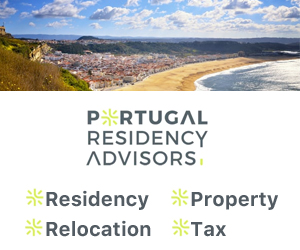Retire in Evora Guide
Summary: If Evora is on your retirement radar, our detailed Retire in Evora Guide is your go-to resource. Delve into the crucial aspects of life here, including living costs, climate, housing options, healthcare services, and residency procedures. We also explore the city's social dynamics, volunteering scenes, transportation, and how walkable its neighborhoods are.
Evora is a charming city that has become a popular retirement destination for international retirees. The city offers a rich history, a warm climate, and a lower cost of living compared to many other European cities. However, like any foreign country, there are challenges to retiring in Evora, such as learning a new language and navigating a different healthcare system. This article will explore the best aspects of retiring in Evora, as well as some of the challenges.
Cost of Living in Evora
One of the main attractions of retiring in Evora is the affordable cost of living. The cost of housing, groceries, and healthcare are significantly lower than in many other European cities. For example, a one-bedroom apartment in the city center can be rented for around €500 per month. Eating out is also affordable, with a meal at a mid-range restaurant costing around €15.
Climate
Evora enjoys a Mediterranean climate, with hot summers and mild winters. The city gets plenty of sunshine throughout the year, making it an ideal location for retirees who enjoy outdoor activities. However, the summers can get quite hot, with temperatures often exceeding 30°C (86°F).
Healthcare
Portugal has a high standard of healthcare, and Evora is no exception. The city has several hospitals and clinics, and many doctors speak English. However, it's important to note that while healthcare is affordable compared to many other countries, it's not free for non-residents.
Public Healthcare System
Portugal has a public healthcare system that provides free or low-cost healthcare to residents. However, international retirees will need to obtain residency status to access this system. Many retirees choose to take out private health insurance to cover any healthcare costs.
Residency Options for Retirees
Portugal offers several residency options for retirees, including the Non-Habitual Resident (NHR) program and the Golden Visa program. These programs offer tax benefits and the ability to live and work in Portugal, but they do require a significant investment in the country.
Parks and Recreational Activities
Evora is home to several parks and recreational areas, including the Jardim Publico de Evora and the Ecopista de Evora. The city is also surrounded by beautiful countryside, perfect for hiking and cycling.
Restaurants
Evora has a vibrant food scene, with many restaurants serving traditional Portuguese cuisine. Some popular choices include Restaurante O Fialho and Tasquinha do Oliveira, both of which offer a range of dishes at reasonable prices.
Learning the Language
While many people in Evora speak English, learning Portuguese can enhance your retirement experience. The University of Evora offers Portuguese language courses for foreigners, making it a great place to start your language learning journey.
Local Culture
The locals in Evora are known for their friendliness and hospitality. The city has a relaxed pace of life, with a strong focus on family and community. There are also many cultural events throughout the year, including the Evora Festival in the summer.
Market Days
Evora has a weekly market where locals and tourists alike can buy fresh produce, local crafts, and other goods. The market is a great place to immerse yourself in the local culture and meet new people.
Housing Options
Most retirees in Evora choose to live in apartments in the city center, where they can be close to amenities and public transportation. However, there are also options for those who prefer a quieter lifestyle, with many beautiful villas and country houses available in the surrounding countryside.
Transportation
Evora is a compact city, making it easy to get around on foot or by bicycle. The city also has a good public transportation system, with regular bus services. However, having a car can be beneficial for exploring the surrounding countryside.
About the Author
 Betsy Burlingame is the Founder and President of Expat Exchange and is one of the Founders of Digital Nomad Exchange. She launched Expat Exchange in 1997 as her Master's thesis project at NYU. Prior to Expat Exchange, Betsy worked at AT&T in International
and Mass Market Marketing. She graduated from Ohio Wesleyan University
with a BA in International Business and German.
Betsy Burlingame is the Founder and President of Expat Exchange and is one of the Founders of Digital Nomad Exchange. She launched Expat Exchange in 1997 as her Master's thesis project at NYU. Prior to Expat Exchange, Betsy worked at AT&T in International
and Mass Market Marketing. She graduated from Ohio Wesleyan University
with a BA in International Business and German.
Some of Betsy's articles include 12 Best Places to Live in Portugal, 7 Best Places to Live in Panama and 12 Things to Know Before Moving to the Dominican Republic. Betsy loves to travel and spend time with her family. Connect with Betsy on LinkedIn.




